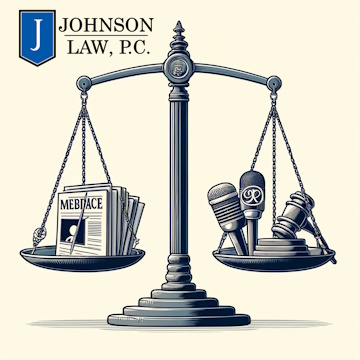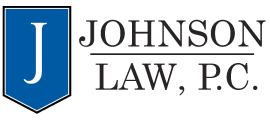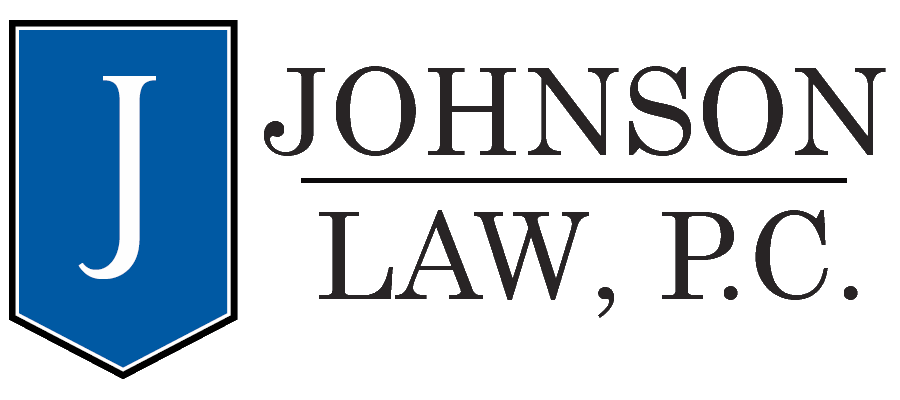Understanding Defamation in Oregon: Protecting Your Rights
Please do not contact us about defamation matters. This is for informational purposes.
Note: Our firm does not currently handle defamation cases. This page is intended to be a useful resource for the community. Do let us know if you would like to talk to a car accident lawyer.
Defamation is a critical legal concern that can deeply affect individuals, especially when it involves media outlets like radio, television, or print. For those wronged by false statements, understanding your rights under Oregon law is essential to protect your reputation and seek appropriate redress.
Please note that we do not currently handle defamation cases. At Johnson Law, P.C., we work every day through the complexities of personal injury law, which involves many related areas of law. Whether you're a private individual or a public figure, knowing how to respond when defamatory statements are made against you in the media is crucial. This post will explore the specific sections of Oregon Revised Statutes (ORS) Chapter 31 that address defamation, focusing on media broadcasts and your right to recover damages. We aim to empower you with knowledge and provide guidance on how to proceed if you find yourself a victim of defamation.
Stay with us as we delve into the legal protections available to you and how you can assert your rights in the face of defamation. This post is part of a series covering ORS Chapter 31 - Tort Law.
Quick Links

ORS 31.200: Liability of Media Personnel in Defamation Cases
In the realm of media broadcasts, the line between sharing information and potentially defaming someone can be thin. ORS 31.200 offers specific legal insights into the liability of radio, television, and other broadcasting station personnel when it comes to defamation. This law is particularly relevant to anyone involved in media dissemination, as well as those who find themselves misrepresented by such outlets.
Legal Protections and Liabilities
Under ORS 31.200, the owner, licensee, or operator of a broadcasting station, along with their agents or employees, are generally not liable for defamatory statements made by third parties during a broadcast unless certain conditions are met. These conditions hinge on the concept of "due care":
- Due Care: It must be proved that the station's personnel failed to exercise due care to prevent the publication or utterance of the defamatory statement. This means that if the station could have taken steps to verify the information before airing it but neglected to do so, they could potentially be held liable for defamation.
- Exception for Political Broadcasts: There is an important exception concerning political broadcasts. No owner, licensee, or operator can be held liable for defamatory statements made by candidates for public office during their airtime, as these broadcasts are protected under federal statutes and regulations by the Federal Communications Commission, which prohibit censorship.
Practical Implications
For individuals who believe they have been defamed in a broadcast, this statute implies that the path to securing damages involves demonstrating negligence on the part of the broadcasters. For broadcasters, it underscores the necessity of having robust fact-checking procedures, especially when airing potentially harmful content about individuals.
At Johnson Law, P.C., we aim to inform you about the intricacies of these legal standards, helping you understand when and how media entities might be held accountable, even though our firm does not directly handle defamation cases.
ORS 31.205: Damages Recoverable for Defamation
When defamation occurs through media—whether radio, television, newspapers, or even motion pictures—the consequences for the victim can be severe, affecting personal reputations and professional lives. ORS 31.205 addresses the damages that a plaintiff can recover in such cases, providing a framework for compensation that reflects the seriousness of the harm done.
Understanding Recoverable Damages
The law explicitly allows for the recovery of both general and special damages, which are contingent upon the presentation of competent evidence by the plaintiff:
- General Damages: These are awarded for harm that is presumed under the law due to the nature of the defamatory act, such as suffering, humiliation, and distress.
- Special Damages: These refer to the quantifiable monetary losses resulting from defamation, such as lost wages or lost business opportunities.
Proving Your Case
For plaintiffs, the key to recovering damages lies in their ability to prove that the defamation has directly and proximately caused them harm. This means connecting the defamatory statement directly to the losses they have incurred, which requires clear and convincing evidence. This aspect of the law ensures that damages are not awarded frivolously or based on speculative harms.
Example Scenario
Imagine a local business owner who is falsely accused on a television program of engaging in fraudulent activities. As a result, the business sees a significant drop in customers, and the owner suffers from stress and anxiety. Under ORS 31.205, the business owner can seek compensation for the loss of business (special damages) and for personal suffering (general damages), provided they can directly link these harms to the defamatory broadcast.
At Johnson Law, P.C., we provide insights into the critical nature of gathering and presenting the right evidence in defamation cases. Our goal is to inform you about documenting all relevant impacts, which is crucial for ensuring robust claims, even though we do not directly represent clients in these matters.
ORS 31.210: When General Damages are Allowed
Defamation can tarnish a person's reputation significantly, but not all defamation cases automatically qualify for general damages under Oregon law. ORS 31.210 sets specific criteria that must be met for a plaintiff to recover general damages, which are intended to compensate for harm that might not have direct economic consequences but are nonetheless impactful, like emotional distress.
Criteria for General Damages
Here are the conditions under which a plaintiff may be eligible for general damages in defamation cases involving media:
- Demand for Correction or Retraction: The plaintiff must have demanded a correction or retraction of the defamatory statement, but the media entity failed to comply as provided in ORS 31.215. This step is crucial as it demonstrates the plaintiff's attempt to resolve the issue without litigation and also sets a formal acknowledgment of the dispute.
- Proof of Intentional Defamation: Alternatively, the plaintiff can recover general damages if they prove by a preponderance of the evidence that the defendant actually intended to defame. This is often more challenging to establish but is critical in cases where the defamation seems malicious and targeted.
Mitigating Factors
ORS 31.210 also considers the potential mitigation of damages:
- Publication of a Correction or Retraction: If the defendant publishes a correction or retraction after the defamation but before a lawsuit, this act can be used to mitigate damages. The court may consider this corrective action as a factor to reduce the amount of compensation due to the plaintiff.
Practical Example
Consider a scenario where a local politician is falsely accused in a magazine article of taking bribes. If the politician demands a retraction which the magazine ignores, and later proves that the false accusations were made with malice, they would be eligible for general damages for the harm done to their reputation and mental anguish.
At Johnson Law, P.C., we emphasize the importance of being informed about swift actions in defamation cases. Understanding the process of demanding corrections or retractions, and the requirements for demonstrating intent, can significantly strengthen one’s position, even though we do not take on these cases directly.
ORS 31.215: Publication of Correction or Retraction upon Demand
A critical aspect of managing a defamation case is the ability to demand and secure a correction or retraction from the publisher. ORS 31.215 outlines the procedure for this demand, emphasizing the rights of the defamed person to seek redress in a structured and timely manner. Understanding and following these guidelines can significantly influence the outcome of a defamation lawsuit.
Demanding a Correction or Retraction
The process for demanding a correction or retraction is precise and must be adhered to closely:
- Written Demand: The demand must be in writing and signed by the defamed person or their attorney. It should be delivered personally or via registered or certified mail to ensure there's a record of receipt.
- Specify False Statements: The demand must clearly specify which statements in the publication are false and defamatory. Providing a detailed account helps the publisher understand the exact nature of the complaint.
- Request for Correction or Retraction: The demand should explicitly request that the false and defamatory statements be corrected or retracted. Including potential sources for the accurate information can aid the publisher in verifying the facts.
Timeline for Publisher Response
Once the demand is received, the publisher has a set period to respond:
- Investigation Period: The publisher is given up to two weeks to investigate the claims made in the demand.
- Publication of Correction or Retraction: After the investigation, the publisher must publish the correction or retraction in the next available issue or broadcast. This ensures timely acknowledgment and remedy of the defamation.
Format and Visibility of the Correction or Retraction
The law also specifies how the correction or retraction should be presented:
- Substantially Conspicuous Manner: The correction or retraction must be published in a manner as conspicuous as the original defamatory statement. This is crucial for ensuring that the correction reaches the same audience as the defamation.
Example Scenario
Imagine a local business owner is incorrectly reported in a newspaper as being under investigation for fraud. The business owner sends a detailed demand for retraction, specifying the inaccuracies and providing evidence of their lawful conduct. The newspaper, upon receiving and investigating the claim, publishes a prominent retraction in their next issue, helping to restore the business owner’s reputation.
At Johnson Law, P.C., we aim to educate on drafting effective demands for correction or retraction, highlighting how to meet all legal requirements. This information is crucial for anyone looking to rectify harm done through defamation, even though our firm does not engage in litigation of defamation cases.
ORS 31.220: Effect of Publication of Correction or Retraction Prior to Demand
Taking proactive steps in addressing defamation can significantly influence the legal landscape of a case. ORS 31.220 focuses on the implications when a publisher issues a correction or retraction before a formal demand is made by the defamed party. This section underscores the potential for mitigating damages and the positive impact of early corrective actions by publishers.
Proactive Corrections and Their Impact
- Equivalent Effect: A correction or retraction published prior to a formal demand has the same legal effect as one published after such a demand. This provision encourages publishers to correct errors as soon as they are discovered, irrespective of external pressures.
- Compliance with Standards: For the early correction or retraction to be legally effective, it must substantially comply with the requirements outlined in ORS 31.215. This includes the prominence and clarity of the correction or retraction, ensuring it reaches the same audience as the defamatory statement.
Strategic Advantages for Both Parties
- For the Defamed: Early corrections or retractions can limit the spread of damaging information, potentially reducing the emotional and reputational impact. For individuals who have been defamed, seeing a prompt and voluntary correction can provide a sense of justice and validation without the need for prolonged legal battles.
- For the Publisher: By acting swiftly to correct false statements, publishers can demonstrate responsibility and integrity, which may reduce potential legal liabilities and preserve their credibility with the audience.
Practical Example
Suppose a local television station mistakenly reports that a restaurant has failed health inspections due to unsanitary conditions. Realizing the error, the station issues a retraction in their next broadcast before the restaurant owner demands it, clarifying that the restaurant passed all inspections. This proactive approach not only helps to mitigate the damage to the restaurant’s reputation but also shows the station's commitment to factual reporting.
At Johnson Law, P.C., we encourage our readers to monitor publications and broadcasts closely for any inaccurate or defamatory content. Understanding the value of early retractions, we provide guidance on how to act swiftly and effectively, which can maximize the potential for a favorable resolution even though our firm does not handle defamation litigation directly.
ORS 31.225: Publisher’s Defenses and Privileges Not Affected
While Oregon's defamation laws provide mechanisms for demanding corrections and seeking damages, ORS 31.225 clarifies that these provisions do not eliminate the traditional defenses and privileges available to publishers under existing law. This section is essential for understanding the full legal context in which defamation cases operate, ensuring that both plaintiffs and defendants are aware of all applicable rights and protections.
Key Defenses and Privileges
- Truth: The most powerful defense against a defamation claim is truth. If a publisher can demonstrate that the defamatory statement is true, it is typically an absolute defense, regardless of the impact on the individual.
- Privilege: Certain statements made in specific contexts are privileged, meaning they cannot be considered defamatory even if they might harm someone's reputation. This includes statements made during judicial proceedings or in legislative debates, among others.
- Opinion: In cases where a statement is clearly presented as an opinion rather than a fact, publishers may have a defense against defamation claims, particularly if the context shows that the statement is not an assertion of fact.
Implications for Our Readers
While Johnson Law, P.C. does not represent clients in defamation cases, understanding these legal defenses is vital for anyone involved in or affected by media publications. It helps in assessing the strength of a defamation claim and in recognizing the protections afforded to those who publish content.
For instance, if a local blogger critiques a business by expressing dissatisfaction with their service, labeling it as "the worst," such a statement is typically defended as an opinion rather than an actionable defamatory fact.
Our aim at Johnson Law, P.C. is to equip you with knowledge about defamation law, helping you navigate the complexities of what constitutes defamation and when legal action may be justified. We encourage anyone facing legal issues related to defamation to consult with a specialized attorney who can provide tailored advice and representation.
Frequently Asked Questions (FAQ)
1. What is defamation? Defamation is a false statement presented as a fact that injures a party's reputation. It can be in written form (libel) or spoken form (slander).
2. How do I prove a defamation case in Oregon? To prove defamation in Oregon, you must show that a false statement was made, it was published to a third party, it caused harm to your reputation, and it was made without adequate research into the truthfulness of the statement.
3. Are there defenses against defamation claims? Yes, common defenses include the truth of the statement, the statement being an opinion rather than a fact, and certain privileges such as those made in judicial proceedings or legislative debates.
4. What should I do if I believe I've been defamed? It's crucial to document the defamatory statements, gather any evidence of harm caused, and consult with a legal professional who specializes in defamation law to explore your options.
5. Can a correction or retraction mitigate damages in a defamation case? Yes, issuing a correction or retraction can help mitigate damages. If done promptly and effectively, it can reduce the impact of the defamatory statement and the potential compensation awarded.
6. What types of damages can be recovered in a defamation case? In Oregon, plaintiffs may recover general damages (for harm to reputation and emotional distress) and special damages (for specific financial losses). Punitive damages may also be awarded in cases of malicious intent.
7. How does Oregon law address defamation in media such as newspapers and television? Oregon law provides specific guidelines for defamation involving media outlets. Publishers are generally required to correct or retract false statements upon demand to avoid certain damages.
Disclaimer: This article is for informational purposes only and does not constitute legal advice. The content provided here is intended to offer general guidance on defamation laws in Oregon. For advice on specific legal issues or cases, please consult with a qualified attorney who is experienced in defamation law.
Please do not contact us about defamation cases. This post is for informational purposes.

